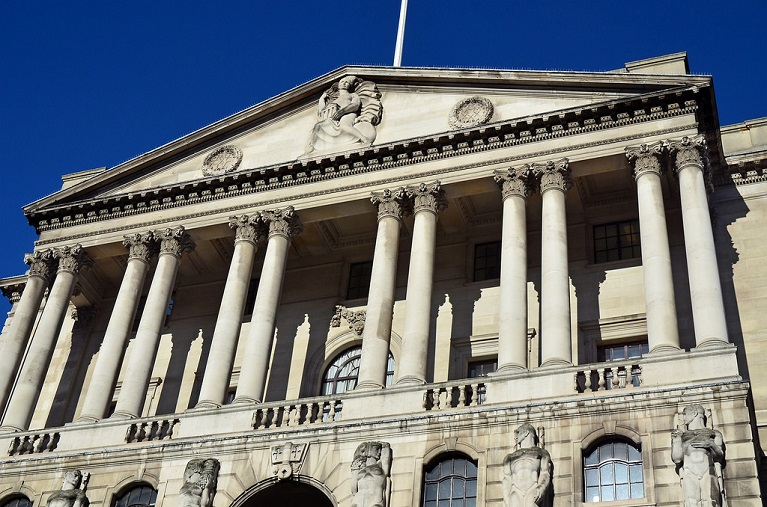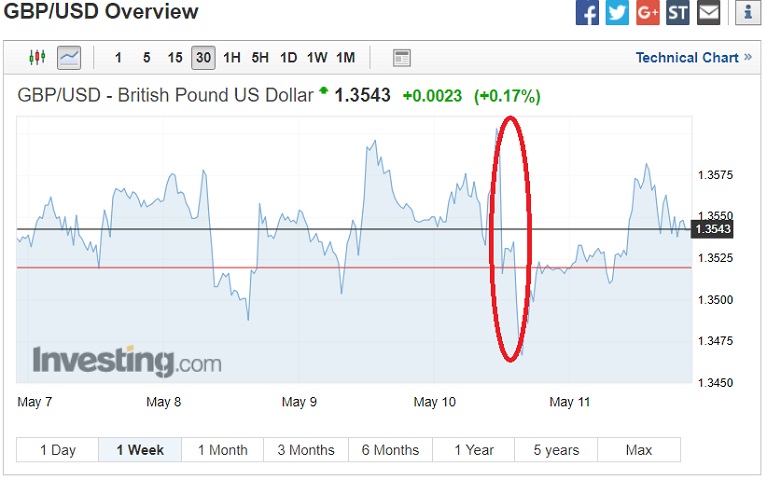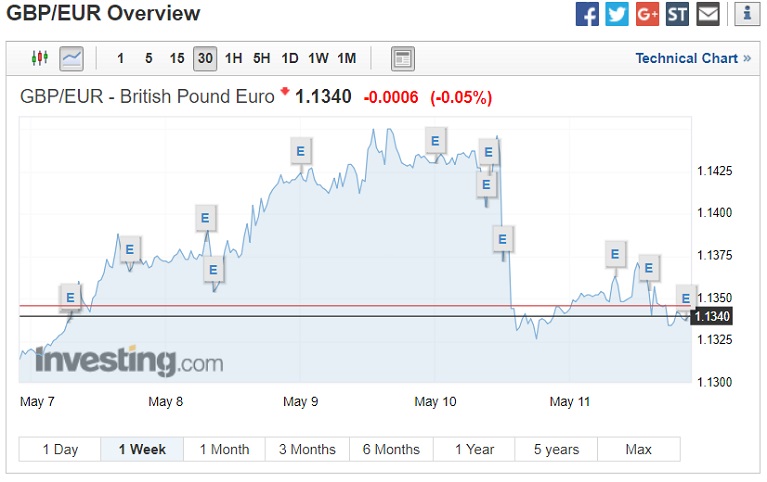Sterling took a pounding (pun intended) as the Bank of England paused for thought again on whether to raise interest rates, eventually deciding against the move. The move to raise interest rates once again received support with 2 MPC members voting for a 0.25% interest rate rise.

Poor run of UK economic data
As highlighted in previous articles the UK’s recent economic data has provided little in the way of support rate rise. Whilst the Bank of England believe that a weak economy will improve its fragility which made the May interest rate rise highly unlikely, therefore markets hadn’t priced in the interest raise.
Many elements of the economy have faltered in the last month or so. UK Quarterly GDP grew at its slowest rate in more than years increasing by just 0.1%. UK inflation also tumbled to its lowest level in a year sparking concerns that inflation could be falling faster than expected, providing more rationale to keep interest rates at 0.5%.
Consumer spending has also faltered and although can be argued that the ‘Beast from the East’ contributed to the lack of activity the British retail consortium reporting a 3.1% fall, the largest fall since the measurement began in 1995. Contributors to retail levels dropping include, the snap cold weather, poor timing of Easter which saw spending drop and more concerningly a squeeze on household spending.
Bank of England’s latest economic forecasts
Last quarter the Bank of England had forecast growth of 0.4% in this quarter equating to 1.8% growth over the year. The latest GDP forecast has been revised down for 2018 with the BOE predicting that the UK economy will grow by 1.4%. Despite the limited growth the MPC are not tempted to divert away from the current plan with many believing an interest rate rise will be initiated in the coming months and definitely by the end of 2018.
Inflation which could now ease at a faster rate than desired is regardless, dropping to the ideal of levels of 2% which still remains the Banks objective. An interest rate rise is still believed to be the required tonic for this to be possible, despite the recent dropping inflation.
When will the BOE look at raising interest rates?
Whilst Mark Carney is never known for his reliable forward guidance the ‘unreliable boyfriend’ did advise that a ‘modest tightening’ could be warranted after August’s inflation report. Potentially signalling a summer or autumn interest rate rise.
Another motivation or argument for the rate rise is the UK’s low level of unemployment which sits at the lowest level since the mid 70’s. It is also estimated that wages will also grow as companies struggle to recruit and train appropriate candidates.
Investors and experts believe the next UK interest rate rise will come in August however many are now saying insinuating that the UK economy is now cooling. This month’s figures and general sentiment would make that hard to argue with. Others have gone further saying Carney is now in denial in relation state of the UK economy, saying that his arguments appeared less plausible in the latest MPC meeting which follows the latest rate decision. Carney has often commented that rates rise is on the way only for the UK economy to hit a pothole, now however many feel that despite high employment levels that the economy is deteriorating at a considerable pace.
The UK is now bearing all of the uncertainty that Brexit can throw at it. Since the UK’s decision to the leave the EU the UK has gone from the G10’s most prosperous economy to its weakest. Hardly a month goes by without amendments to the conservative party and the UK’s housing market has cooled and finds itself propped up by the ‘Help to Buy’ scheme set up by the previous regimes chancellor George Osbourne.
Although many elements of the Brexit deal have been agreed there remain many fundamental parts of the UK’s departure plan which will jeopardise the final parting. This will also provide a potentially declining economy with another sinkhole to avoid.
Pound Dollar descends to a 4-month low
Despite the market’s awareness that the UK’s interest rate rise wasn’t going to be implemented this month the pound tumbled. The MPC meeting saw Sterling being sold off and analysts questioning the rationale or direction of the Bank. Pound v Dollar fell roughly 2 cents touching a 4-month low of 1.3467 in the aftermath.
Sterling-Euro has also paired back the rate decision and following comments and fell to a week low of 1.1326 and unlike the GBP/USD pair has shown little signs of support or recovery. Whilst mild rebounds could be inspired by UK and Euro data it would appear that the currency pair seems stuck between lows of 1.11 and 1.15 and any gains will be short-lived.


